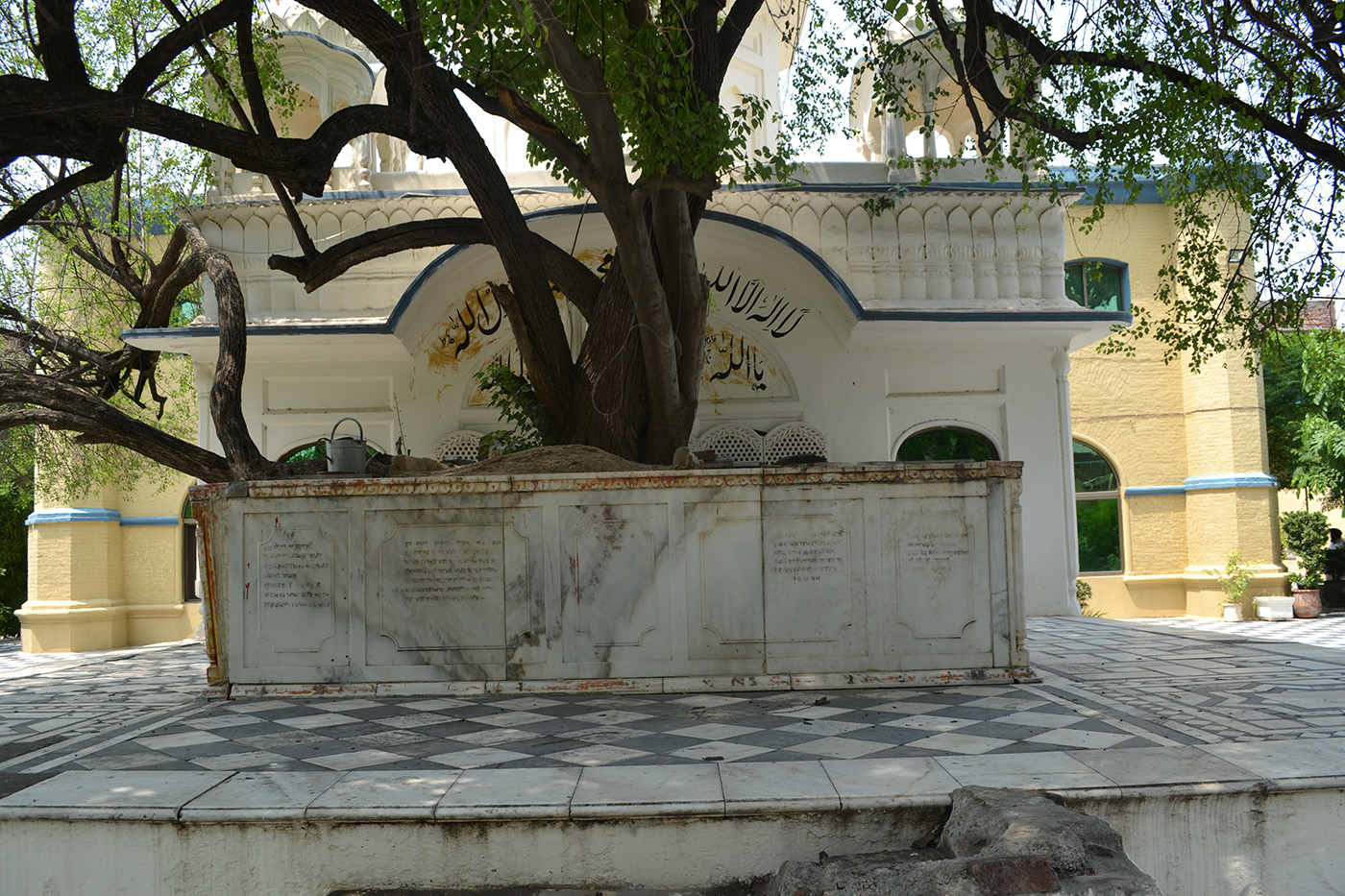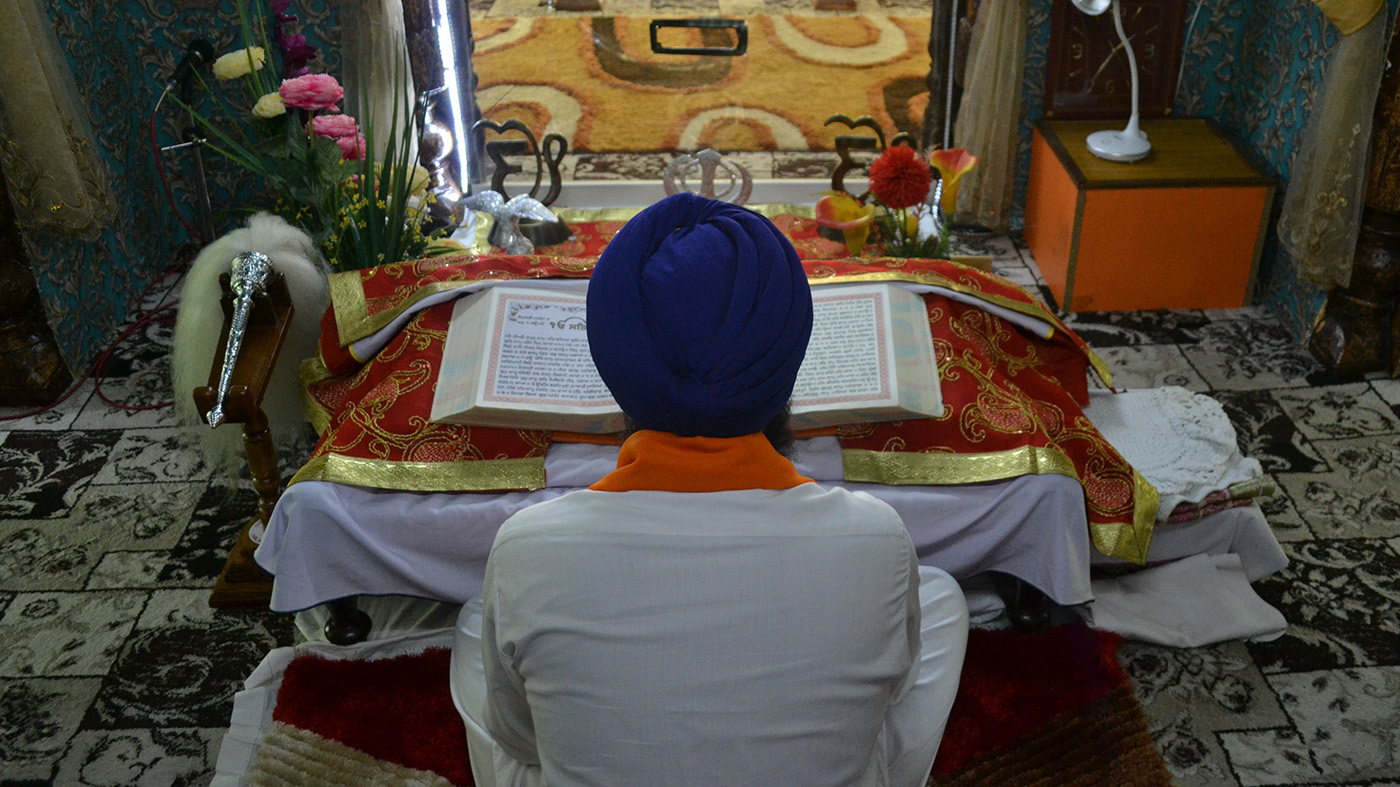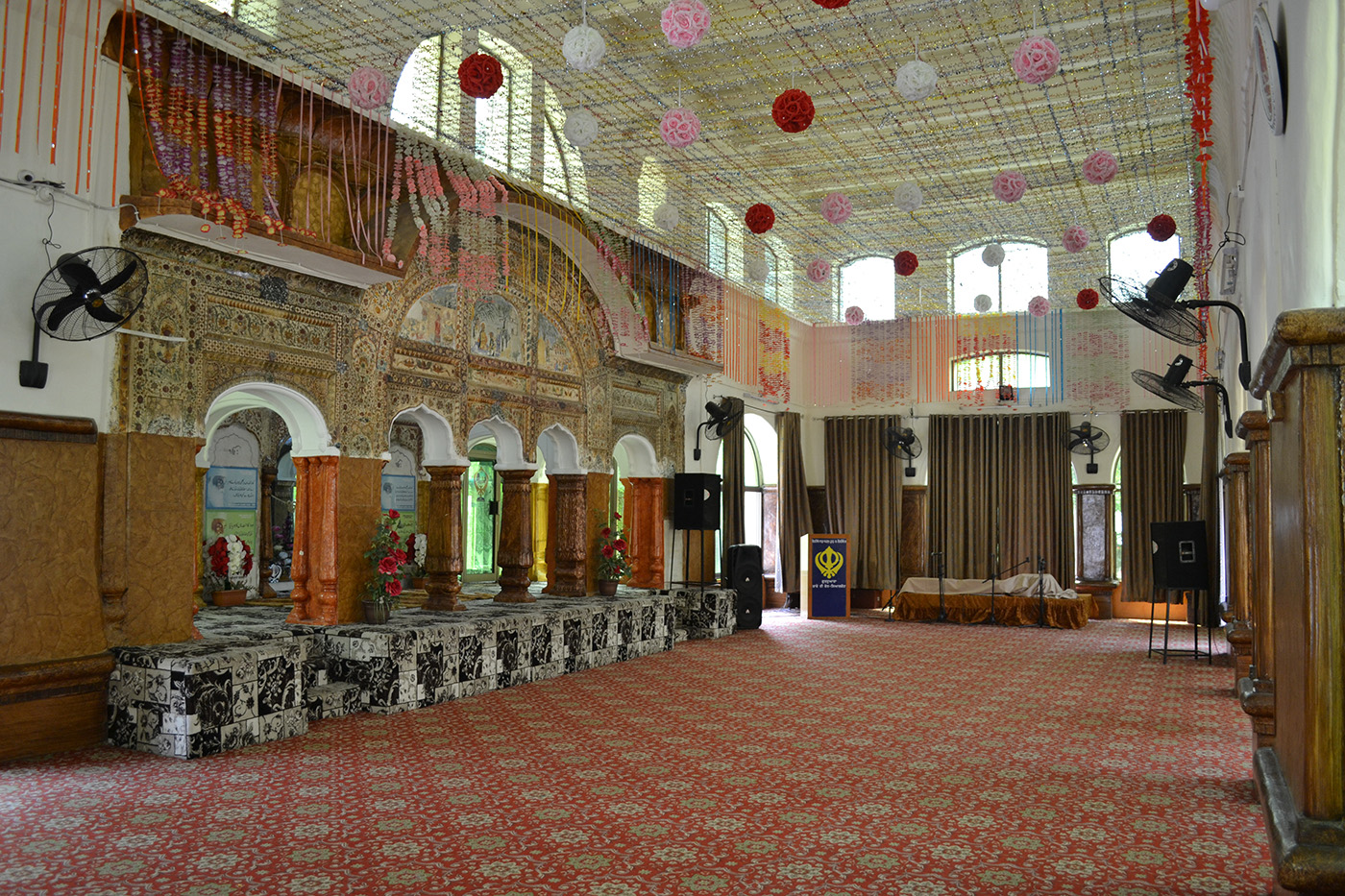SIALKOT: An ancient berry tree forms the center of gravity of the small, single-story gurdwara in Sialkot, close to Pakistan’s border with neighboring India.
Sikhs believe that Baba Guru Nanak, the founder of their religion, sat for several days under this very tree when he arrived in Sialkot in 1517. At the time, a devotee from the city who backtracked on a promise had unleashed the fury of the Sufi saint Hamza Ghaus who had resolved to destroy Sialkot within 40 days.
When Nanak heard about the incident, he met Ghaus and after several rounds of talks under the berry tree, managed to convince him not to punish an entire city for the sins of one man. Gurdwara Babe de Ber was thus built around the tree in remembrance of Nanak’s encounter with the incensed saint.

An ancient berry tree under which Baba Guru Nanak, the founder of Sikhism, is said to have sat and met with Sufi saint Hamza Ghaus, photographed on July 5, 2019, in Sialkot, a district of Punjab province in Pakistan. (AN photo by Benazir Shah)
Today, homes and shops have cropped up around the gurdwara and it is now tucked away in a cluttered alleyway in a residential area of Sialkot. It has a modest structure compared to other palatial Sikh temples in Pakistan but last month, its status was elevated when the provincial government in Punjab province announced that pilgrims from neighboring India would be allowed to visit it.
Many Sikhs fled to India when Britain divided its Indian empire into Muslim Pakistan and mainly Hindu India in 1947, forever splitting the Sikh homeland, the fertile plains of Punjab. Since then, homesick Sikhs across the border have yearned for the temples they left behind.

A young man reads the Guru Granth Sahib, the holy book of Sikhism, inside the Gurdwara Baba de Ber on July 5, 2019, in Sialkot, a district of Punjab province in Pakistan. (AN photo by Benazir Shah)
Jaskaran Singh, the caretaker of Gurdwara Babe de Ber, told Arab News a delegation of Sikh community leaders recently visited Chaudhry Mohammad Sarwar, the governor of Punjab, and asked him to allow pilgrims from India to visit the gurdwara in Sialkot. Sarwar granted permission, given the temple’s proximity to the Kartarpur corridor, a new border crossing and route for Sikh pilgrims to visit another temple in Pakistan where Nanak is buried.
In a rare instance of cooperation, South Asian rivals India and Pakistan announced last year that they would work together to construct the corridor which will give Sikh pilgrims from India single-day, visa-free access to visit Kartarpur.
“Since the city of Sialkot is a short drive from Kartarpur, those visiting from India will also be allowed to come here for worship,” Singh said about the Gurdwara Babe de Ber.
Nanak was born in 1469 in a small village near the eastern Pakistani city of Lahore and many Sikhs see Pakistan as the place where their religion began. Each year, upwards of 5,000 Sikh pilgrims from India and its diaspora travel to Pakistan, a bulk of them arriving in November, close to the dates of the festivities surrounding Nanak’s birth.
Pakistan is home to an estimated 15,000 Sikhs, according to Pakistan’s Sikh Gurdwara Parbandhak Committee. The exact figure is unknown as the Sikh community was left out of the 2017 population census. Of the 172 gurdwaras in the country, only 22 are functional.

A congregation is being held inside Gurdwara Babe de Ber on July 5, 2019, in Sialkot, a district of Punjab province in Pakistan. (AN photo by Benazir Shah)
Gurdwara Babe de Ber too was sealed in December 1992 after a string of attacks and acts of vandalism against Pakistan’s minorities in response to right-wing Hindu mobs attacking the 16th century Babri Mosque in India. The temple remained closed until 2013, when it was finally repaired and reopened.
Easily recognized because of their colorful turbans, members of Pakistan’s Sikh community say they have been singled out and attacked increasingly in the South Asian nation where radical militants consider them infidels. According to police, the Pakistan Sikh Council, and Sikh representatives in the Punjab and Khyber Pakhtunkhwa provinces where most Pakistani Sikhs reside, ten prominent members of the Sikh community have been “target killed” since 2014, stirring unprecedented fear – and fury – among the community.
Sikhs have also constantly battled with the Pakistan government for ownership of hundreds of gurdwaras across the country. Under an agreement signed between Pakistan and India after partition, religious lands and temples cannot be sold. And yet, many lands allotted for Sikh temples and crematoriums have been disposed off by the Evacuee Trust Property Board, a body responsible for the maintenance of properties abandoned by people who left for India in 1947.
In one high-profile case, Gulab Singh, Pakistan’s first Sikh traffic warden, filed a case against Asif Hashmi, the chairman of the Evacuee Trust Property Board, accusing him of illegally selling gurdwara land to land developers. In January last year, the Supreme Court found Hashmi guilty.
Haroon Khalid, an anthropologist who has written a number of books on Pakistan’s minorities, including ‘Walking with Nanak,’ said allowing Sikhs from India to visit the gurdwara in Sialkot was a significant move by the Pakistan government, which in recent years has taken multiple steps to reassure the community.
“It is part of the larger framework which has been in motion since the past several years now. Many Sikh gurdwaras have been renovated and opened to Sikh pilgrims,” Khalid said. “This is a great initiative and must be celebrated as much as it can be.”
But for Gurdwara Babe de Ber to be able to host Indian pilgrims, more toilets and guest rooms will need to be built, and a langar, or free communal kitchen, will have to be arranged. Although the temple has been open for the last six years, the caretaker, short on funds, said he had not been able to get the place up and running, though he hopes with donations from family members settled abroad, he will have at least a few guest rooms ready before pilgrims start to arrive in November.
“On paper, the Gurdwara has 205 kanals of land, but we only have six kanals left now,” Singh said. The rest have been encroached by shopkeepers and homeowners, he said, who had caused significant damage to the building, defacing painted images of Nanak on the walls and scraping off verses of Sikhism’s sacred text written around the berry tree.
When Jaskaran Singh first moved into the Gurdwara in 2012, he said he faced strong opposition from a mob of men who had occupied the temple and converted it into the shrine of a Muslim saint.
“When we asked them to leave, they threatened to have us killed,” the caretaker said, saying local police finally helped uproot the invaders and handed the temple back to the Sikh community: “The government has been very helpful. They allowed us to reopen and they also provide security around the clock.”















